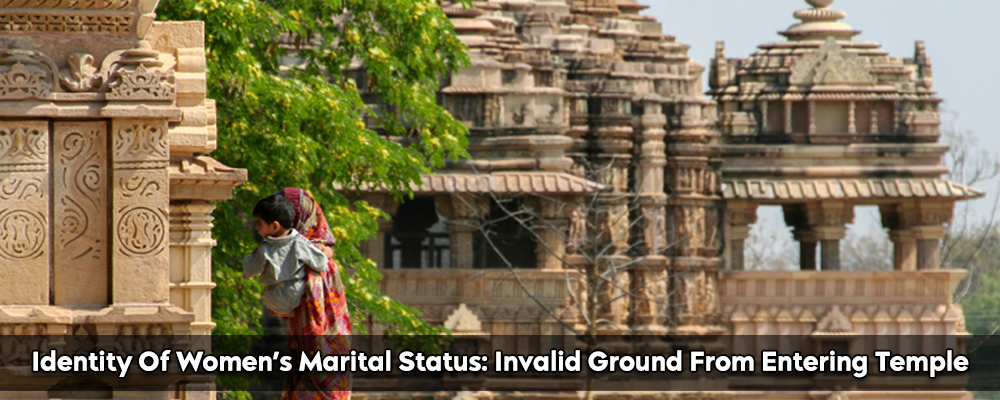For a very long time, society has believed that a woman’s identity is closely linked to her marriage status. The label “widow” carries a lot of shame and is commonly applied to people to exclude them from various aspects of society, particularly places of worship like temples. By denying them their rightful place in society, these norms have contributed to the marginalization of widows and the preservation of gender inequality. Sadly, these biases have marred the temple, which is cherished as a place of worship and spiritual enlightenment.
Strengthening the Status of Widows in
In addition to eradicating discriminatory practices, the struggle for enabling widows to enter temples seeks to help widows to restore their independence and remain on an equal footing with other segments of society. Barring the widows from entering the temple not only reinforces a negative mentality but also limits their participation in religious and communal activities. Providing access to them confronts the ingrained prejudices that have hampered their prospects and aspirations for centuries.
Need A Legal Advice
The internet is not a lawyer and neither are you. Talk to a real lawyer about your legal issue

Constitution of India on Right of Widows in Entering Temple
The Constitution of India protects widows’ rights to enter temples in a number of ways-
- It ensures equality and outlaws discrimination regardless of marital status under Article 14. Widows are guaranteed under this fundamental right to be accorded the same rights and advantages as other persons, especially the freedom to enter temples as well as other places of worship with no fear of discrimination on account of their marital status.
- It ensures equal access by prohibiting discrimination based on marital status or gender under Article 15. By making sure that widows are not subject to discrimination or exclusion from temples because of their marital status, this article safeguards widows’ right to freely practice their religion.
- It defends the right to make respectable decisions in life, including restriction-free temple entry under Article 21. If widows are prohibited from entering temples for no other purpose than that they are widows, their rights to live with dignity and to exercise their freedoms as individuals may be violated.
- It allows for the right to practice and propagate any religion, making it possible to enter temples under Article 25. This gives widows the peace of mind that their ability to participate in religious events or visit temples as a reflection of their religious beliefs won’t be restricted due to their marital status.
- It maintains cultural customs, preventing exclusion from places of worship under Article 29 and 30. These articles might be seen as safeguarding widows’ right to practice their religion and follow their cultural traditions, such as entering temples, without unjustified restrictions.
Judicial Pronouncement: Madras High Court
In the case of Thangamani v The Collector, Erode District, according to the Madras High Court, a widow’s entry to a temple shouldn’t be limited based on her marital status. This judicial decision underlines the fundamental idea that a woman’s identity is never to be determined by her marital status and strikes at the root of a deeply ingrained social convention.
Breaking with the Status Quo
The notion that a woman’s identity is intrinsically related to her marital status has been upheld by numerous cultures and nations for decades. This concept has led to a number of unfair practices, such as barring widows from temple entry. Widows have long been stigmatized and excluded from public spaces, particularly religious ones, which have contributed to an increase in their alienation and helplessness.
The Madras High Court has made a ruling that challenges the current quo and brings society one step closer to inclusion and development. By emphasizing that a widow’s right to visit a temple is independent of her marital status, the court has made significant progress in removing long-standing biases and preserving the ideal of equality for women.
Conclusion
The decision of the Madras High Court that a widow cannot be banned from entering a temple based on or dependent on her marital status is a landmark decision in the fight for equality of gender and growth of the society. It helps to stimulate diversity, eliminate established preconceptions, and acknowledge women as recognizable individuals with absolute rights and liberties.
One can talk to a lawyer from Lead India for any kind of legal advice. In India, free legal advice online is obtainable at Lead India. Along with receiving free legal advice online, one can also ask questions to the experts online free through Lead India.



